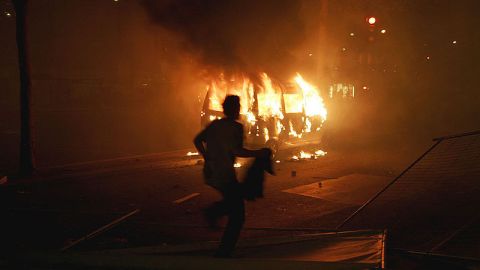The Web’s Unruly World

The BBC’s decision last week to cut a quarter of all spending on its web ventures may have seemed a counterintuitive move for a modern day media organization, but is it so out of line with major corporations’ general attitude toward new media journalism? Over at reportr.net, Alfred Hermida found some revealing wording from the BBC’s strategic review, which labeled the blogosphere a “vast and unruly world,” one into which the likes of the BBC presumably fear to tread.
“Unruly?” Hermida asks, “Well, to an extent, yes. But why not say vibrant, lively or even boisterous? In its choice of words, the BBC appears to dismiss the contribution that blogging is making to the public sphere.” And in fact, the BBC’s review emphasizes the importance of this contribution in the very same paragraph, saying that despite the perceived “global democratisation of opinion and argument” the digital revolution has enabled, “professional media power may actually concentrate in fewer hands,” leaving “societies around the world left with fewer reliable sources of professionally validated news.” The blogosphere’s multiplicity of voices matters only if those voices are saying something new or at least different, when blogs make an effort serve as a counterbalance to the same old stories and viewpoints of the mainstream media. In other words, the blogosphere is doing its job only when it becomes “unruly” in opposition to the corporations’ stale order.
Blogs obviously fulfill this role more and more, but reporting and analysis on the Web have a credibility problem, no matter how many stories blogs break. As the BBC’s review reveals, a large part of new media’s problems arise from the fact that online journalists and bloggers are still considered second-rate compared to their colleagues who work primarily in print and broadcast. A prime example of this was the New York Police Department’s policy—instituted in 2007—to not grant press passes to bloggers and online-only journalists, no matter how reputable their sites. Under the new rules, which Mayor Mike Bloomberg unveiled last Tuesday, “self-employed newspersons and other individuals who gather and report the news” (bloggers and web writers) can get passes if they have “covered, in person, six news events where the City has restricted access” within the past two years. The change came about after three web reporters filed a federal lawsuit against the regulations because they were denied passes. Norman Siegel, the attorney who represented the reporters in the suit, said that with the new rules, “online journalists will now be considered as 21st century journalists and be treated equally to print, television and radio journalists.” Hopefully this policy sets the example for web reporter access, and readers will come to expect and demand more—more reporting, more fact checking, more accountability—from these 21st century journalists.





